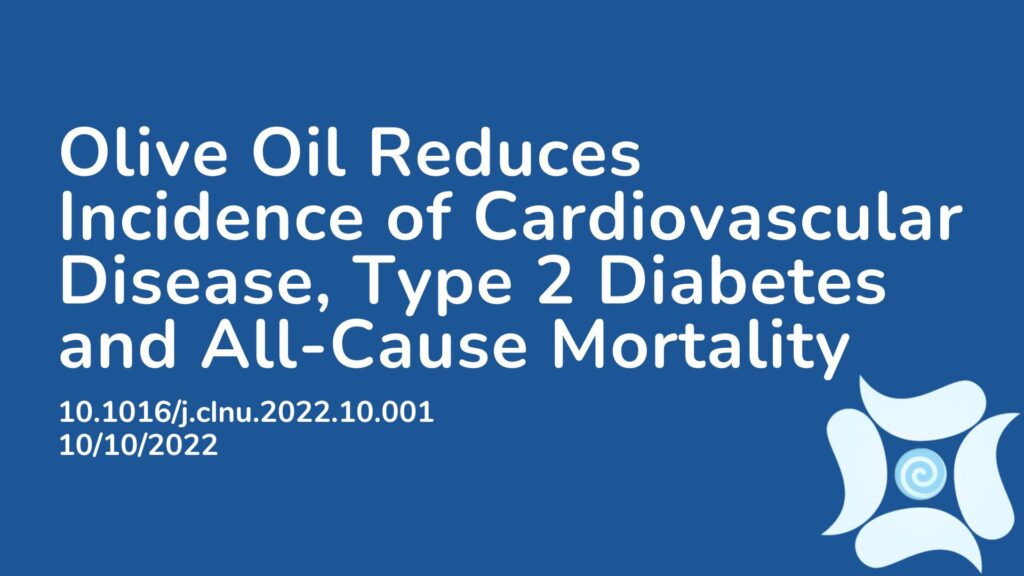Summary:The mediterranean diet receives substantial attention regarding cardiovascular and overall health and is the most widely tested dietary pattern. It is also a highly palatable, accessible and sustainable approach to eating. This paper is a systematic review and meta-analysis of the available evidence on the association between olive oil consumption, one of the main reasons the mediterranean diet receives so much attention, and cardiovascular disease (CVD), type 2 diabetes (T2D), cancer or all-cause mortality. The results showed that a 16% reduced risk of CVD was present each additional 25 grams per day of olive oil was consumed. Olive oil consumption was also associated with a lower risk of having T2D as well as all-cause mortality. The results did not show any positive association between olive consumption and cancer, however more research is needed in the area before conclusively saying there is no association.
Abstract:
Background: Some large prospective studies on olive oil consumption and risk of chronic disease suggested protective effects. Objective: We conducted an outcome-wide systematic review and meta-analysis of prospective cohort studies and randomized controlled trials (RCT) assessing the association between olive oil consumption and the primary risk of 4 different outcomes: cardiovascular disease (CVD), cancer, type 2 diabetes (T2D) or all-cause mortality through January 2022. Methods: Thirty-six studies were included in the systematic review and twenty-seven studies (24 prospective cohorts and 3 different reports from one RCT) were assessed in 4 quantitative random-effects meta-analyses. They included a total of 806,203 participants with 49,223 CVD events; 1,285,064 participants with 58,892 incident cases of cancer; 680,239 participants with 13,389 incident cases of T2D; and 733,420 participants with 174,081 deaths. Olive oil consumption was most frequently measured with validated food frequency questionnaires. Studies follow-up ranged between 3.7 and 28 years. Results: A 16% reduced risk of CVD (relative risk [RR]: 0.84; 95% confidence interval [CI]: 0.76 to 0.94), standardized for every additional olive oil consumption of 25 g/d was found. No significant association with cancer risk was observed (RR: 0.94; 95% CI: 0.86 to 1.03, per 25 g/d). Olive oil consumption was associated with a 22% lower relative risk of T2D (RR: 0.78; 95% CI: 0.69 to 0.87, per 25 g/d) without evidence of heterogeneity. Similarly, it was inversely associated with all-cause mortality (RR: 0.89; 95% CI: 0.85 to 0.93, per 25 g/d). Only the results for T2D were homogeneous. Specific sources of heterogeneity for the other 3 outcomes were not always apparent. Conclusions: Prospective studies supported a beneficial association of olive oil consumption with CVD, T2D and all-cause mortality, but they did not show any association with cancer risk.
Article Publication Date: 10/10/2022
DOI: 10.1016/j.clnu.2022.10.001



